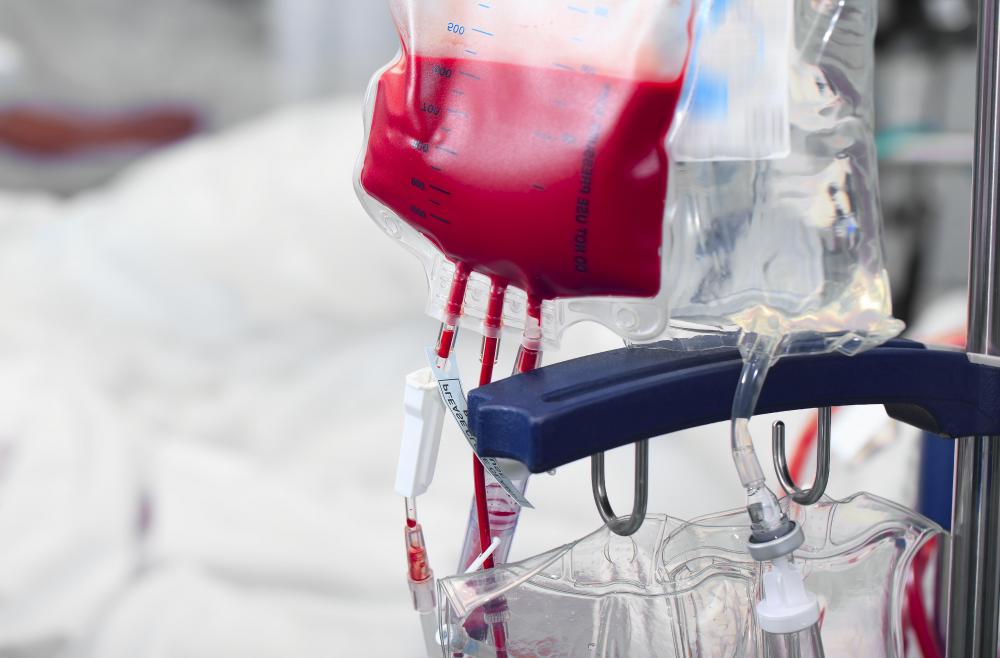At WiseGEEK, we're committed to delivering accurate, trustworthy information. Our expert-authored content is rigorously fact-checked and sourced from credible authorities. Discover how we uphold the highest standards in providing you with reliable knowledge.
What Is Post-Tonsillectomy Hemorrhage?
Post-tonsillectomy hemorrhage identifies a rare, but serious, complication of surgery that can lead to death if not treated as an emergency. It represents uncontrolled bleeding after tonsils are removed via surgery. Repeated episodes of bleeding might lead to post-tonsillectomy hemorrhage that requires another surgery to repair. A person suffering from post-tonsillectomy hemorrhage can rapidly go into shock or aspirate blood.
Minor bleeding after tonsillectomy generally signals no cause for concern. It might occur within two hours of the operation but commonly appears four to eight days later. Slight bleeding can occur at any time until the site of the surgery completely heals, which generally takes about a week in children and up to three weeks for adults. Ice chips dissolved in the mouth usually control minor bleeding.

Post-tonsillectomy hemorrhage denotes a much more serious condition and typically requires a visit to an emergency room. A 2008 study by German doctors examined the death rate of 55 children who experienced serious bleeding after the procedure, with a total of 169 bleeding episodes among the group. Nineteen children died after 11 of them experienced more than one bout of bleeding.

Seven of the children who died from post-tonsillectomy hemorrhage aspirated blood into their lungs. The study reported 24 of the 55 children needed blood transfusions to replace lost bodily fluids. Resuscitation was performed on 17 patients, seven of whom ended up dying.
Tonsillectomy is still considered a fairly minor surgery requiring minimal care once the patient returns home. The most important instruction from surgeons generally includes drinking plenty of liquids to prevent dehydration. A child or adult might be unable to eat solid food in the first few days after tonsillectomy, and should avoid spicy, salty, or citric liquids that might irritate the throat.

Prescribed pain medication usually treats sore throat pain after surgery. Some patients also experience discomfort in the ears a few days after the operation. Pain medication also addresses a slight fever that is common after this tonsillectomy. Along with pain drugs, doctors routinely prescribe antibiotics to ward off infection.
Tonsils might be removed when a person suffers repeated bouts of tonsillitis, a common illness in children. If inflammation spreads to the adenoids, they are typically removed at the same time. Tonsillitis stems from a bacterial or viral infection that might lead to an abscess. Surgery is commonly recommended when a person suffers five infections within two years, or three bouts of tonsillitis a year for three years in a row.
AS FEATURED ON:
AS FEATURED ON:



















Discuss this Article
Post your comments